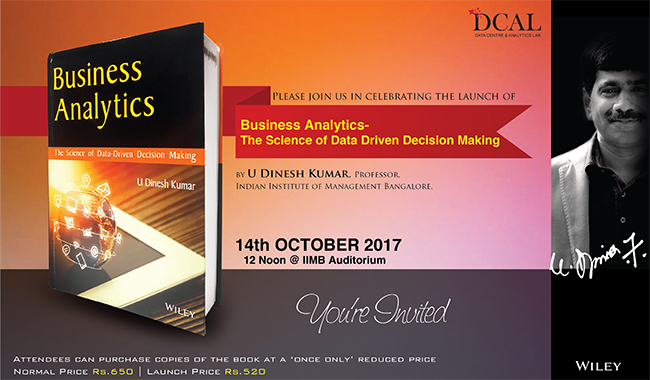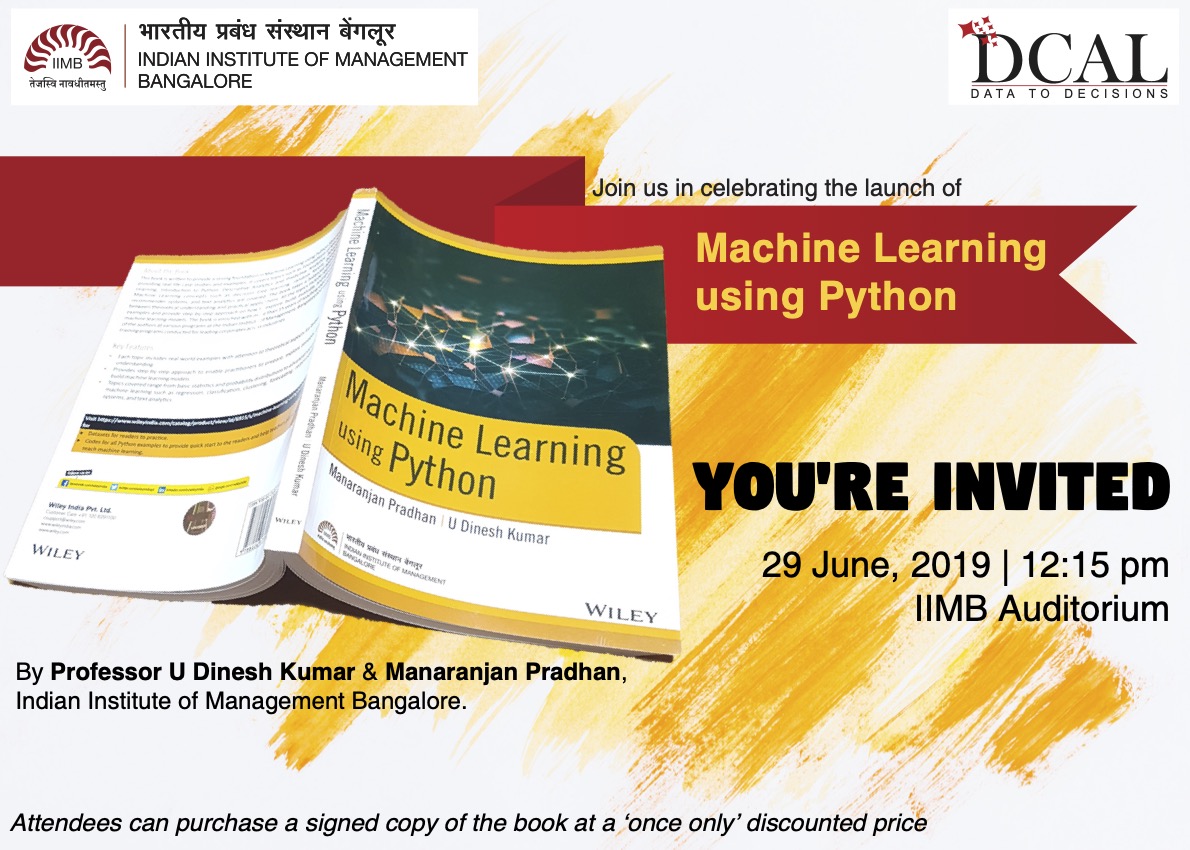Useful Books
There are many books and online resources available. However, With bigger collection comes more confusion!!! Picking the right set of learning resources is important for structured learning. The books listed below may give you a quick start with understanding for data science concepts in layman’s language and with practical business uses cases from companies based out of India. A book on “Machine Learning using R” co-authored by me will be added to the list below in few months.
The Science of Data Driven Decision Making
A must read book for practitioners in the field of data science as well as for academicians. The book explains the basic as well as advanced concepts using business uses cases. Most of the business cases used in the book chapters and exercises are a part of harvard business publishing. The mathematics behind the concepts have also been explained with application on business use cases. Thus makes it exciting to see how a raw subject like math, to many folks, comes alive to solve practical business problems.
The book has 17 chapters and addresses all components of analytics such as descriptive, predictive and prescriptive analytics. The first chapter is dedicated to introduction to business analytics and its components such as descriptive, predictive and prescriptive analytics along with several applications. Chapters 2 to 8, discusses the basic statistical concepts such as descriptive statistics, concept of random variables, discrete and continuous random variables, confidence interval, hypothesis testing, analysis of variance and correlation. Chapters 9 to 13 are dedicated to predictive analytics techniques such as multiple linear regression, logistic regression, decision tree learning and forecasting techniques. Clustering is discussed in Chapter 14. Chapter 15 is dedicated to prescriptive analytics in which concepts such as linear programming, integer programming, and goal programming are discussed. Stochastic models and Six Sigma are discussed in Chapters 16 and 17, respectively.
Note that this book is not intended to show the application of machine learning concepts using languages like Python or R. This is a book for learning the concepts within the realm of practical business problems.
You may consider reading the exceptional and classic books by Sheldon Ross after having gone through this book by Dinesh Kumar U.
Machine Learning using Python
This book is an add-on to the previous book. This book is not for learning basics of python or python programming as a language. This is a book for python practitioner or people with basis knowledge of any scripting knowledge (R, VB Script, Julia, excel macros, MATLAB etc.) and who wants to venture into the field of machine learning implementation using python. Thus, having a solid foundation in the field of data science is a pre-requisite before one tries to apply the techqniues using python language. The book brings a balance between the theoretical concept and application of the concepts in python. Application of advanced machine learning concepts such as decision tree learning, random forest, boosting, recommended systems, and text analytics are covered as well.
Other books
The fundamental and building block for machine learning starts with conceptual understanding of mathematics, probability and statistics. Few of the books which may be useful to get deeper understanding of algorithms and techniques used in data science are as below:
- Mathematics for Machine Learning - Marc Peter Deisenroth and Et.al.
- Introduction to Probability and Statistics for Engineers and Scientist - Sheldon Ross
- Optional: A First Course in Probability and Introduction to Probability models - Sheldon Ross
Having a foundation in linear algerba, calculus, matirx and vectors and its decomposition, probability theory etc. may help a reader to deep dive into many machine learning algorithms. The first book in the above list will help you get introduced to many basic concepts. The last two books on probabilities are classics but may be hard to follow for many practitioners from industry.


